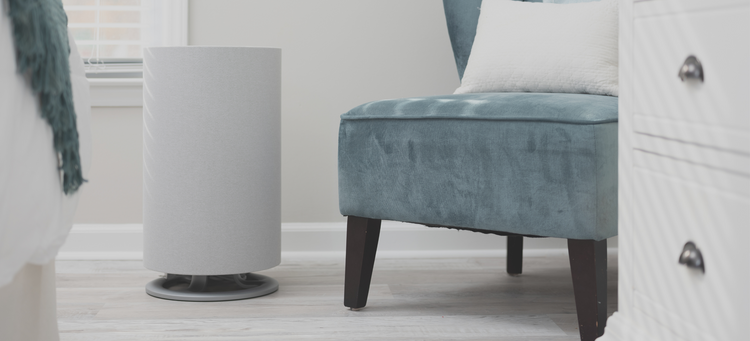October Is Healthy Lung Month: Here’s How to Maintain Healthy Lungs
We tend to take breathing for granted until it’s difficult for us. Since October is health lung month, it’s a great reminder that we can make healthy decisions that protect our lungs. We know it’s important, but what can be done to maintain healthy lungs?
One of the most important things is to regularly see your doctor. Regular checkups can help prevent minor health issues from becoming major ones. Seek a medical professional’s help if you’re having issues breathing or have bronchitis symptoms like chest pain or a chronic cough.
When it comes to preventing health issues, a lot of these suggestions overlap with approaches suggested by the American Lung Association. This list should help you mitigate symptoms caused by respiratory illnesses like asthma and chronic obstructive pulmonary disease (COPD) and keep your lungs healthy.
Avoid Outdoor Air Pollutants
Air pollution is a common trigger for respiratory illnesses. Outdoor air pollution exposure has been tied to acute respiratory infections, asthma, COPD, and lung cancer. Avoiding ambient air pollution is essential for lung health.
Wildfires and wildfire smoke are almost a yearlong concern now. The season is longer and more intense and regional factors like the Santa Ana Winds increase wildfire risk even in cooler months like October.
There are constant air pollutants that can harm your lungs even if you haven’t experienced wildfires and lingering smoke. The burning of fossil fuels, emissions from motor vehicles, ozone, carbon monoxide, and nitrogen dioxide are all common air pollutants that can irritate the lungs.
Clean Your Indoor Air
You can avoid outdoor air pollution by staying indoors, but nasty pollutants exist indoors as well. Surprisingly, indoor air is more polluted than outdoor air, so it’s very important to clean your indoor air.
Running an air purifier with high efficiency filters and a strong quality motor is a safe and effective way to maintain healthy indoor air quality. Indoor and outdoor air pollution is going to harm your lungs, so having healthy indoor air is crucial to maintaining lung health.
Strengthen Your Immune System
Strengthening your immune system is going to help mitigate respiratory illness and other forms of illness and disease. Having a strong immune system helps lower your risk for chronic disease in general.
There are several things you can do to strengthen your immune system including eating well, exercising, maintaining a healthy sleep schedule, and quitting smoking.
Quit Smoking & Vaping
Of course this makes the list. Quitting cigarette smoking is a lifesaver for your lungs. Smoking is the leading cause of lung cancer and can cause irreparable damage to your lungs.
Vaping is included as you’re inhaling harmful chemicals like formaldehyde that will harm your lungs when you vape. Quitting, or never starting in the first place, is the best way to protect your lungs from cigarette smoke, but you also need to avoid secondhand (and even thirdhand) smoke.
Avoid Secondhand Smoke & Thirdhand Smoke
Secondhand smoke can have a very serious impact on lung health. Secondhand smoke is when you’re close enough to someone who is actively smoking to inhale the smoke yourself.
Thirdhand smoke is when residual smoke stays in an environment and can still harm you even though there’s no active smoke. If you smoke in your home, then that environment will actively damage your lungs, the lungs of everyone around you, and people who visit your home in the future. The smoke settles into areas like the carpets and the walls and can still harm your lungs even if you’re not actively smoking indoors.
Avoiding smoking, not being around those who are actively smoking, and having a no smoking indoors rule is essential to protect your lungs from cigarette smoke.
Exercise Regularly
The American Lung Association has some great tips for exercising to maintain healthy lungs and how to exercise if you have lung disease or another respiratory illness. It’s best to first talk with your doctor before changing your daily exercise routine.
Aerobic, muscle-strengthening, and breathing exercises all benefit your lung health. Walking, biking, jumping rope, gardening, weight lifting, pilates, and a breathing exercise routine are great ways to benefit your heart and lung health.
There are several things you can do on your own to keep your lungs happy and healthy, but it’s still best to consult a medical professional if you are having breathing problems or need a specialized plan to maintain lung health.



